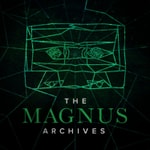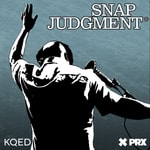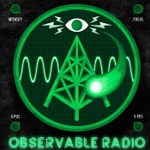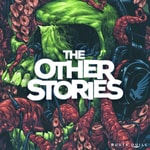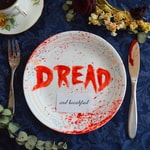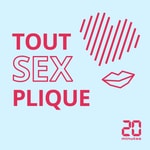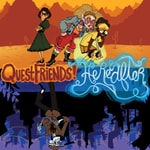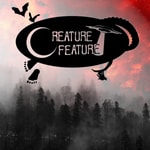The Science Slot Machine – Détails, épisodes et analyse
Détails du podcast
Informations techniques et générales issues du flux RSS du podcast.
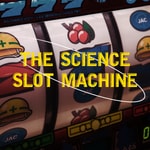
The Science Slot Machine
The Science Slot Machine
Fréquence : 1 épisode/24j. Total Éps: 16

Classements récents
Dernières positions dans les classements Apple Podcasts et Spotify.
Apple Podcasts
🇨🇦 Canada - socialSciences
25/04/2025#89🇨🇦 Canada - socialSciences
24/04/2025#68🇨🇦 Canada - socialSciences
23/04/2025#49🇨🇦 Canada - socialSciences
22/04/2025#41
Spotify
Aucun classement récent disponible
Liens partagés entre épisodes et podcasts
Liens présents dans les descriptions d'épisodes et autres podcasts les utilisant également.
See all- https://freesound.org/
5004 partages
- https://www.zapsplat.com/
3164 partages
- https://www.bensound.com/
2983 partages
Qualité et score du flux RSS
Évaluation technique de la qualité et de la structure du flux RSS.
See allScore global : 53%
Historique des publications
Répartition mensuelle des publications d'épisodes au fil des années.
Shaping Spaces (Through Sounds)
Épisode 12
samedi 24 avril 2021 • Durée 44:11
How does your life sound? Which soundscapes shape the spaces around you? Let’s enter the STS spaceship and listen in on what Harry, Robbie, Costa and Nora would send out to space to portray their lockdown routines in 2021 Vienna. Join them in discussing the soundtracks of their lives and learn more about how STS concepts can help to make sense of space - be it at a physical, sociocultural or cognitive level.
Feel free to share the soundscapes that portray your life with us in your Instagram story by tagging us @science_slotmachine. You can also always send us your topic suggestions and STS related questions to scienceslotmachine@gmail.com
Thanks to Free Sound user FiveBrosStopMosYT for “Spaceship Flyby 3” (uploaded on April 2nd, 2021 - Creative Commons licensed). Additional sounds from NASA’s Voyager Spacecraft Golden Record.
In The Mood For Food
Épisode 11
jeudi 25 mars 2021 • Durée 24:24
💖 Fooooooood 💖
🍎 In this episode, Robbie, Nora, and Costa take a closer look at food 🍌
How can we look at food? And how can we look at food through an STS (Science and Technology Studies) lens?
We discuss various aspects of food, including food production, our relations to food, food waste, and many more! What can we learn about societies and humans when looking at our relation to food ❓ Also, we try to discover some recent trends within the topics of food production and consumption 🌟
In order to gain more insights, we explore different angles, theories, and concepts from STS and beyond. We discuss Langdon Winner’s article “Do Artefacts Have Politics?”, a chapter from the STS Handbook, and Sheila Jasanoff’s notion of “co-production”.
Tune in to get to know more about how we can look at food through an STS lens 🔊
Sources:
Iles, A., Graddy-Lovelace, G., Montenegro, M. & Galt, Ryan. (2016). Agricultural systems: Co-producing knowledge and food. In U. Felt, R. Fouche, C. Miller, L. Smith-Doerr (Eds.), The Handbook of Science and Technology Studies (4 th edition) (pp. 943-972). Cambridge: The MIT Press.
Jasanoff, S. (2004). The Idiom of Co-production. In States of Knowledge. The Co-Production of Science and Social Order (pp. 1-12) . London: Routledge.
Winner, L. (1986). Do Artifacts Have Politics? In The Whale and the Reactor. A Search for Limits in an Age of High Technology (pp. 19-39) . Chicago: University of Chicago Press.
Sound from Zapsplat.com
US Presidential Elections (Part I)
Saison 1 · Épisode 5
mercredi 11 novembre 2020 • Durée 57:52
Presidential elections are the main trait of modern democracies. 🗳️ And with the USA representing the oldest continuous democracy we know, the current presidential elections between Donald Trump and Joe Biden created an intense debate both within and beyond the geographical borders of the United States. 🇺🇸
Huge thanks to Hugh Schmidt 👨🎓 who took part in this episode and provided us with valuable insights on the structure of the voting system in the USA. Get to learn more about the history of elections, the established practices, and different voting mechanisms.
What is a swing state? Have you heard of gerrymandering? Whose vote matters at the end of the day? 🧐 In this episode, we also address potential ways that could help us improve the voting system and engage the citizens more actively with the election process. ✔️
Stay safe and do not forget to VOTE because our future is in our hands! 💪
#politics #USelections2020 #VOTE
🗓️ To avoid confusion, we want to inform you that this episode has been recorded on November 7th, 2020. 🗓️
Stay up to date with the upcoming topics in the Science Slot Machine on our social media channels: 🤳🏽
Instagram @science_slotmachine
Facebook @TheScienceSlotMachine
Twitter @SciSlotMachine
Last but not least: Let’s spin the science slot machine reels again and see which topic hits the jackpot! 🎰 Drop us your suggestions to scienceslotmachine@gmail
E-Learning in Times of a Pandemic
Saison 2 · Épisode 1
mercredi 28 octobre 2020 • Durée 36:25
Soo, it is uni time again! 🏛️ And with the beginning of the new semester, we get to experience new challenges with e-learning, in terms of technology, organization, and peer communication. 🎓💻
For this episode, we created a short questionnaire as we aimed to explore further the satisfaction among students in various universities and FHs in Vienna regarding digital education practices during the COVID-19 pandemic. And we were quite surprised by the results! 🤯
What do you think, how would e-learning develop in the future, or, as an STS scholar would say - what are the socio-technical imaginaries of e-learning? 😱 What features would be needed in digital communication platforms? 🤖 Share your opinions on our email or social media! 📧
We are curious about how the satisfaction with e-learning would develop throughout the term also beyond the regional borders of Vienna. Maybe we do a follow up on this episode. Fill out our casual survey here: https://forms.gle/kCExrjDK7ka1zziR8
Stay up to date with the upcoming topics in the Science Slot Machine on our social media channels: 🤳🏽
Instagram @science_slotmachine
Facebook @TheScienceSlotMachine
Twitter @SciSlotMachine
Last but not least: Let’s spin the science slot machine reels again and see which topic hits the jackpot! 🎰 Drop us your suggestions to scienceslotmachine@gmail
Sources:
Sound snippets available at www.freesound.org
The End of The Universe
Saison 1
mardi 22 septembre 2020 • Durée 47:07
Have you ever wondered when the end of the universe would arrive and how it would look like? 🌌 Have you even thought about how old the universe might be?
Future-making is a big deal in Science and Technology Studies. Therefore, Team Cherry 🍒 and Team Banana 🍌 debate over the possible scenarios that might cause the end of the World as we know it. Considering the popular misconception that the end of the universe and the end of the civilization are synonyms, the two teams aim to provide some insights from the fields of Astrophysics and Cosmology. 💫
Hit the ▶️ and get to learn a bit more about the various scientific theories, where do they differ and why do they carry such absurd names - The Big Crunch, The Big Bounce, The Big Chill, The Big Rip.. ☠️ Why is it important to know how the universe is going to end and what impact this has on society as a whole? Can we even do something about it and should the idea of the end of the universe motivate us to live a more meaningful life?
Big shoutout to Thomas Zauner 👨🎓 who agreed to share his knowledge on the topic and helped us give this special STS twist to the conversation.
Stay up to date with the upcoming topics in the Science Slot Machine on our social media channels: 🤳🏽
Instagram @science_slotmachine
Facebook @TheScienceSlotMachine
Twitter @SciSlotMachine
Last but not least: Let’s spin the science slot machine reels again and see which topic hits the jackpot! 🎰 Drop us your suggestions to scienceslotmachine@gmail
Sources:
Mack, K. (2020). The End of Everything: (Astrophysically Speaking). Scribner.
Sound snippets available at www.icons8.com/music
Coffeehouse Culture in Vienna
Saison 1 · Épisode 2
mardi 28 juillet 2020 • Durée 43:14
We like our podcast as we like our coffee – local and thought-provoking. 😎
Have you ever wondered why coffee houses are such a major part of the Viennese traditions? ☕ Café Central, Café Ritter, Café Landtmann are just a few of the most popular names that you might be familiar with. Let’s dive into the Viennese coffee house culture with the Science Slot Machine Podcast and get to learn more about the history of coffee houses in Austria and the vital role such social places play in our lives. 🕵️ Team Cherry 🍒 and Team Banana 🍌 unite forces and will take you on a journey that smells like rich coffee and sounds like classical music.
Meanwhile, you can enjoy a more philosophical discussion on where do we draw the line between “doing” culture and “consuming” culture. Are modern coffee houses a simulacrum of an old tradition, a museum, or are these creating a reality on their own – what would you say? 🌌
Hearing and auditory perception are quite a big part of this episode, so listen carefully! 👂
Stay up to date with the upcoming topics in the Science Slot Machine on our social media channels: 🤳🏽
Instagram @science_slotmachine
Facebook @TheScienceSlotMachine
Twitter @SciSlotMachine
Last but not least: Let’s spin the science slot machine reels again and see which topic hits the jackpot! 🎰 Drop us your suggestions to scienceslotmachine@gmail
Sources:
Baudrillard, J. (1981). Simulacres et simulation (Débats). Paris: Galilée.
Pauli, Hertha. (1970). Der Riss der Zeit geht durch mein Herz: Ein Erlebnisbuch. Vienna: Paul Zsolnay Verlag.
More from the amazing pianist Alejandro Escuder you could find on his website http://www.alejandroescuder.com/ 🎹
Tracking Pigeons in Vienna
Saison 2 · Épisode 1
vendredi 12 juin 2020 • Durée 57:34
With two new members, Patrick and Costa, the first official battle between Team Cherry 🍒 and Team Banana 🍌 revolves around the topic of (*drums*) Tracking Pigeons in Vienna! 🕊️ Quite a challenge but both teams managed to dig in the most interesting and relevant scientific findings and wrap them up in a great podcast episode!
No doubt the flying rats have a terrible reputation...
Hit the play button ▶️ and learn more about the fascinating nature of pigeons and how the urban areas have shaped the relationship between humans and birds. Why are pigeons so good at navigating spaces? What makes them such an interesting object in various scientific fields? Are pigeons actually cyborgs??? How can we deal with the issue of pigeon poop all over the place and why is it bad to feed pigeons in the first place? 🧐
This, and much more, as well as a sneak-peek to our interviews with experts from the NGO Tierschutzverein and the Tierschutzombudsstelle in Vienna, exclusively on the first episode of the Science Slot Machine. 🧠 We promise you will be a pigeon expert after this!
❗️ Please avoid feeding pigeons on the street – unless it's their naturally required food: grains! – and don’t forget to report cases of sick or injured pigeons on the local wild animal hotline +43 1 4000 49090.
Last but not least: Let’s spin the science slot machine reels again and see which topic hits the jackpot! 🎰 Drop us your suggestions to scienceslotmachine@gmail.com
- Bingman, V. P., Jechura, T., & Kahn, M.C. (2006). Behavioral and neural mechanisms of homing and migration in birds. In M.F. Brown and R.G. Cook (Eds.), Animal Spatial Cognition: Comparative, Neural, and Computational Approaches.
- Bingman, V. P., Hough, G. E., Kahn, M. C., & Siegel, J. J. (2003). The homing pigeon hippocampus and space: in search of adaptive specialization. Brain, behavior, and evolution, 62(2), 117–127.
- Dobeic, M., Pintaric, S., Vlahovic, K., & Dovc, A. (2011). Feral pigeon (Columba livia) population management in Ljubljana. Veterinarski Arhiv, 81(2), 285–298.
- Haraway, D. (2003). The Companion Species Manifesto: Dogs, People, and Significant Otherness. Chicago: Prickly Paradigm Press.
- Johnston, R. F., & Janiga, M. (1995). Feral Pigeons. Oxford University Press.
- Rose, E., Nagel, P., & Haag-Wackernagel, D. (2005). Suitability of using the global positioning system (GPS) for studying Feral Pigeons Columba livia in the urban habitat. Bird Study, 52(2), 145–1
- Senar, J. C., Montalvo, T., Pascual, J., & Peracho, V. (2017). Reducing the availability of food to control feral pigeons: Changes in population size and composition. Pest Management Science, 73(2), 313–317.
- Skinner, B. F. (1948). 'Superstition' in the pigeon. Journal of Experimental Psychology, 38(2), 168–172.
- Soldatini, C., Mainardi, D., Baldaccini, N. E., & Giunchi, D. (2006). A temporal analysis of the foraging flights of feral pigeons (Columba livia f. Domestica) from three Italian cities. Italian Journal of Zoology, 73(1), 83–92.
- Stephan, C., Wilkinson, A., & Huber, L. (2012). Have We Met Before? Pigeons Recognise Familiar Human Faces. Avian Biology Research, 5(2), 75–80.
- Stephan, C., Wilkinson, A., & Huber, L. (2013). Pigeons discriminate objects on the basis of abstract familiarity. Animal Cognition, 16(6), 983–992.
- Tierschutztombudsstelle Wien. (2020). Tieranwalt.at—Stadttaubenkonzept der Tierschutzombudsstelle Wien. Tieranwalt.at. https://www.tieranwalt.at/stadttaube.htm
Welcome to the Science Slot Machine!
Saison 1 · Épisode 1
mardi 28 avril 2020 • Durée 34:31
Hi you all and welcome to the Science Slot Machine podcast! This is a special pod-trailer we have prepared for you in order to tell you what the Science Slot Machine is all about. In this exclusive episode, we introduce the field of Science and Technology Studies (STS) and explain how we use an STS perspective to make science more fun, exciting, and interactive! 🧠
Get to know better the team behind the podcast - Kat, Harry, Borni, Robi, Patrick, and Julia 👨👩👧👦 as in the next episode Team Banana and Team Cherry are going to battle and pitch the most interesting scientific findings on a topic of your choice!
Let’s spin the science slot machine reels and see which topic hits the jackpot! 🎰 Drop your suggestions on scienceslotmachine@gmail.com
Scientific Misconduct
Épisode 10
dimanche 7 mars 2021 • Durée 47:20
In this episode, the Science Slot Machine team discusses the interview with professor Ulrike Felt further and explores pathways to think about science, different practices, and scientific misconduct 👀
But first, we are happy to announce that we are bringing on a new team member! In this episode, fellow STS master’s student Nora joins Robbie, Costa, and Harry for the first time 👯👯 Get to know more about her in the episode 👋
Here, the four of us discuss various aspects of scientific misconduct including plagiarism, false data fabrication, and issues of (co)authorship ☝
While we also touch upon famous cases of plagiarism like the recent case of minister Aschbacher in Austria, we ask ourselves how scientific practice can actually be improved and how good scientific practice can actually be achieved❓
Tune in to get to know more about misconduct, responsibility, and trust in science 🔊
References:
Shapin, Steven, & Schaffer, Simon. (1985). Leviathan and the Air-Pump: Hobbes, Boyle, and the Experimental Life. Princeton: Princeton University Press.
Merton, Robert K. (1973) [1942]. The Normative Structure of Science. In Robert K. Merton Robert (ed.), The Sociology of Science: Theoretical and Empirical Investigations (pp. 267-278). Chicago: University of Chicago Press.
Weber, Stefan. (2009). Das Google-Copy-Paste-Syndrom: Wie Netzplagiate Ausbildung und Wissen gefährden (2., aktualisierte und erw. Aufl.. ed., Telepolis). Hannover: Heise.
Weber, Stefan. (n.d.). Doz. Dr. Stefan Weber. Sachverständiger für Plagiatsprüfung. Accessed March 6, 2021. https://plagiatsgutachten.com/.
Special Feature: Ulrike Felt on Good Scientific Practice
mercredi 3 mars 2021 • Durée 44:36
In this special feature, Harry and Costa have an interview on scientific practice with professor Ulrike Felt from the Department of Science and Technology Studies (STS) at the University of Vienna. 🎓
Together with Harry and Costa, our guest discusses a variety of questions: What is good science? Where does the responsibility for good and bad science lie? How can we look at science and scientific misconduct through an STS lens? 😎 How can we research scientific practices and the values embedded in them?
👭 In STS we look at science as a collective enterprise.👭 While we often assume that scientists do their very best to expand the knowledge that societies can build upon, this assumption has been challenged and discussed critically by STS scholars since the 1980s.
Recently in Austria, we have been talking a lot about plagiarism, but professor Ulrike Felt nicely points out that there is more to discuss when thinking about science and scientific misconduct.💬
She also explains to us what her own research is about and how she investigates scientific practices. Thanks a lot to Ulrike Felt who shared her thoughts and ideas with us.🎇
Tune in to get to know more! 👋
Ulrike Felt’s university webpage: https://sts.univie.ac.at/en/about-us/ulrike-felt/
